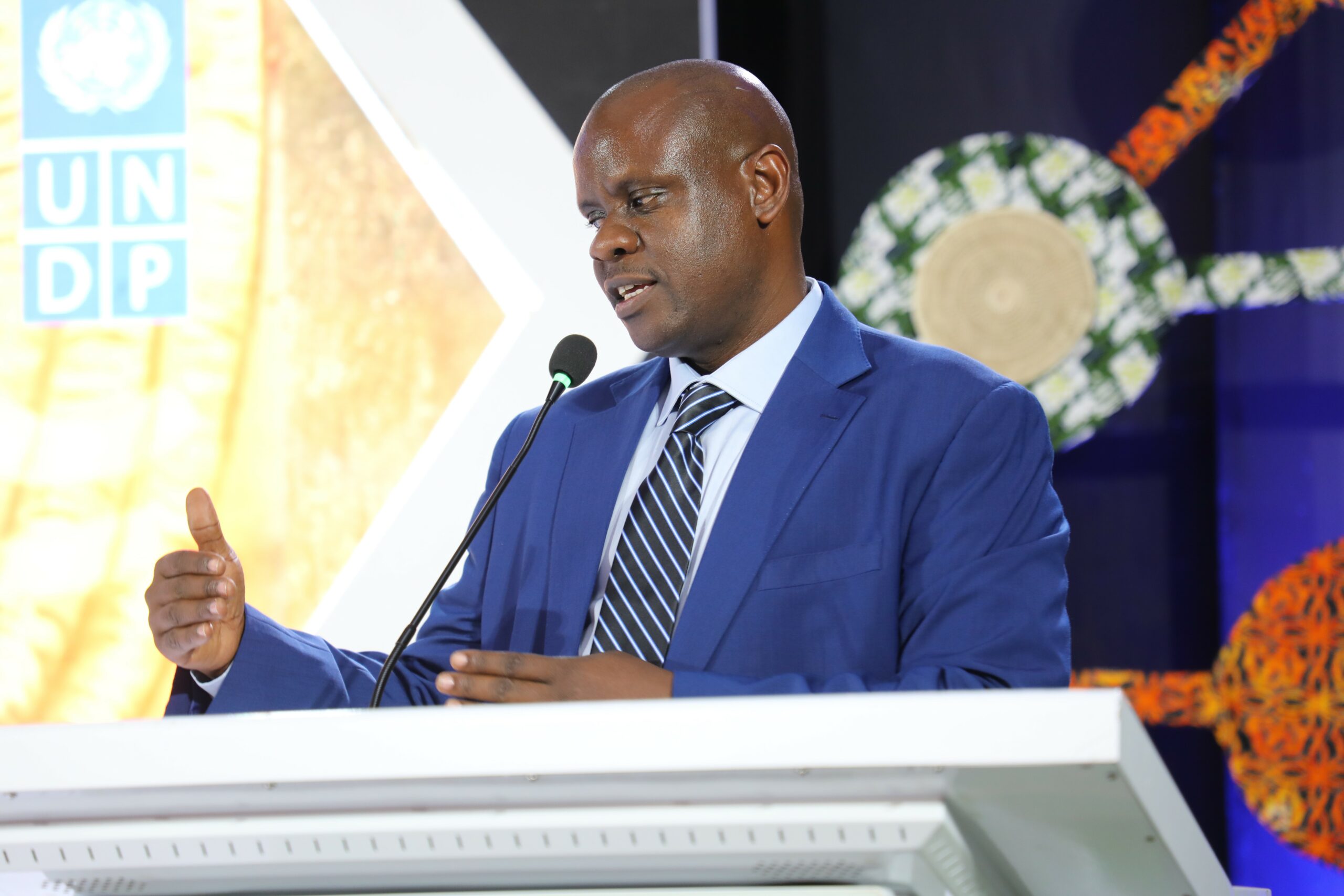KAMPALA, April 30, 2024 – Balaam Barugahara Ateenyi, the Minister of State for Youth and Children Affairs wants the United Nations Development Programme [UNDP] to support the Ugandan creative industry by offering international platforms to showcase their creatives.
Barugahara made the call last Thursday at the Golf Course Hotel, Kampala as Uganda held the belated World Creativity and Innovation Day celebrations.
World Creativity and Innovation Day is a global UN day celebrated on April 21 to raise awareness around the importance of creativity and innovation in problem solving with respect to advancing the United Nations Sustainable Development Goals [SDGs].
Minister Barugahara urged the Ugandan youth to be more creative and taking the necessary steps in securing funding, although he stressed the importance of availing exhibition platforms for the local artists. “Our people should be given platforms for exhibiting their creatives.”
In the same vein, he warned institutions against training the youth in areas that are not viable for their locations and passion, which he said could result in wastage of resources, time, and energy.
“Do not start hairdressing in Karamoja, where people have hair like mine; train them on rearing milk-producing cattle like planting drought-resistant grass,” he said.
Barugahara reminded the creative industry that there were more gaps in the innovation industry: “We have only tried to innovate around medicine—Kazire, Covidex.”
Speaking at the same function, the UNDP Resident Representative for Uganda, Nwanne Vwede-Obahor, concurred with the minister’s observation, highlighting the abundance of untapped opportunities for the creatives in Uganda. She emphasised the existence of further gaps to explore and harness for productive purposes.
“The creative inductive industry is one of the most important and rapidly growing sectors of the economy and has become an essential catalyst for income generation, green job creation, and social progress,” Nwanne Vwede-Obahor said.
She asked African governments to dismantle mechanisms that disallow young people from creating innovations as sustainable growth technology to democratise access to knowledge.
At the event, Peace Regis Mutuuzo, the Minister of State for Gender and Culture urged the UNDP to prioritise investing in the establishment of regional centres where artists can market their creatives.
She encouraged the local creative industry to harness the power of the internet as a pivotal tool for marketing their goods effectively.
“We have managed to buy clothes from Italy [while in Uganda], so why can’t we also sell online?” she said.
Minister Mutuuzo highlighted the advantage of retaining raw materials within the country, stressing that government incurs significant losses when value addition is neglected.
Adding to that, she said the Government of Uganda has set up a budget for funding the creative industry.
She urged the youth to channel their energy into creativity and innovation, discouraging them from seeking informal jobs abroad. She emphasised that such jobs are not sustainable and advised them to prioritise developing their creativity and innovativeness instead of pursuing opportunities that may not provide long-term stability.
“You are royals here [in Uganda]; don’t go for slavery,” the minister advised the youth.
Addressing the exhibitors’ concerns on copyright law, Stephen Asiimwe, the Chief Executive Officer of Private Sector Foundation Uganda, urged government to expedite the enactment of the updated law so that artists, especially musicians, benefit from their works.
“TVs and radios are advertising using their [muscians’] music…without paying them,” Asiimwe said.
In a related development, the Senior Officer, Research and Exhibition at Uganda Registration Services [URSB], Abraham Onyait Ageet advised the creative artists to register trademarks for their works and ideas so that they are guarded against infringement.
The creative industry, including arts, fashion, crafts, advertising, design, entertainment, architecture, literature, media, software, and more, has become a vital force in accelerating human development. Creatives empower people to take ownership of their own development and stimulate innovative solutions that can drive inclusive and sustainable economic growth.
According to the UNDP, if creatives are nurtured intentionally, the creative economy can serve as a source of structural economic transformation, socioeconomic progress, job creation, and innovation while contributing to social inclusion, advancing shared cultural values, and sustainable human development.
Buy your copy of thecooperator magazine from one of our country-wide vending points or an e-copy on emag.thecooperator.news
